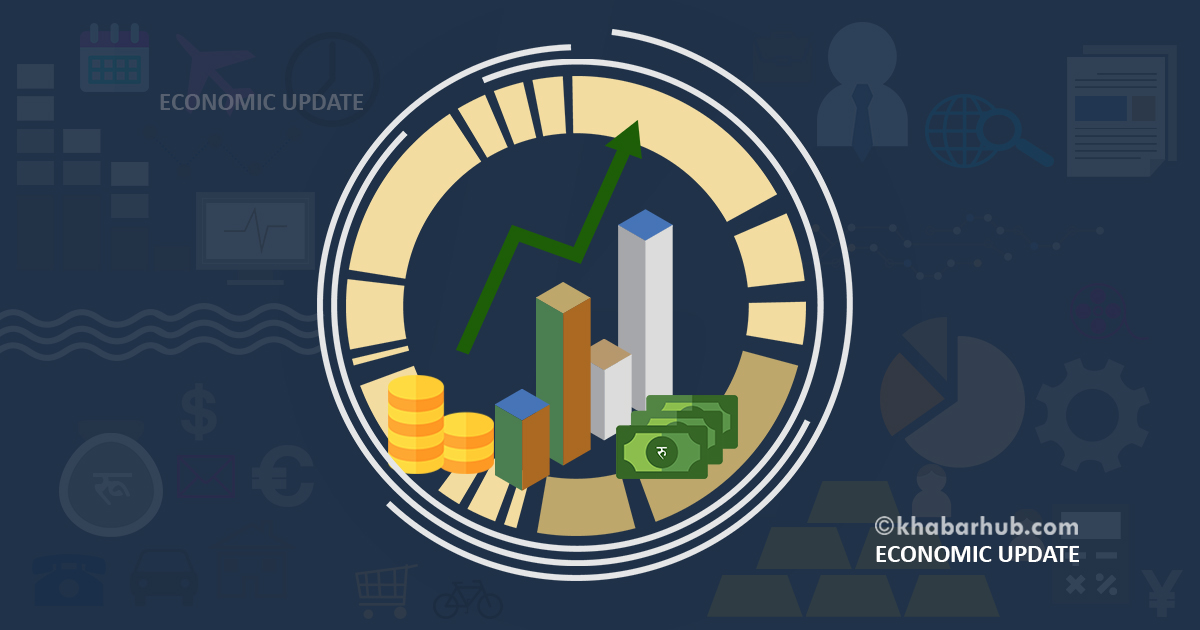KATHMANDU: Economic Digest offers a concise yet comprehensive overview of significant business happenings in Nepal, presented in easily digestible summaries.
STC’s robust Q3 performance
Salt Trading Corporation Limited (STC) demonstrated robust performance in Q3 FY 2080-81, with a 40% surge in net profit to 5.19 crores, driven by a remarkable 63.91% increase in sales revenue.
However, challenges emerged with a significant rise in interest expenses by 52.85%. Despite this, STC maintained healthy EPS and Net Worth per Share.
The surge in revenue reflects effective market strategies, while prudent cost management sustained profitability amidst rising expenses. Managing interest expenses is crucial for sustained growth.
NEPSE index records 0.28% surge in Thursday’s trading
The trading session at the Nepal Stock Exchange (NEPSE) last day witnessed a notable uptick, with the NEPSE Index gaining 0.28%, equivalent to 5.63 points, closing at 1,966.23 points.
This signifies a positive sentiment in the market, with investors likely reacting favorably to certain developments or news.
Commencing at 1,963.45, the trading day showcased volatility, with the index hitting an intraday high of 1,970.55 before sliding to an intraday low of 1,955.15.
Market activity remained robust, marked by the exchange of 313 stocks in 49,332 transactions.
The total volume of shares traded stood at 7,058,399, reflecting a turnover of Rs. 3.12 Arba.
Market capitalization was reported at Rs. 31.17 Kharba, with a float market capitalization of Rs. 10.56 Kharba.
Bagmati govt. spends just 38.92% of 2080/81 budget
The Bagmati Province government spent just 38.92% of its allocated budget for the fiscal year 2080/81, with ten months passed. The Controller Office of Province Treasury and Accounts in Hetauda reported that only 24 Arba 40 crore 78 lakhs out of the total budget has been expended.
Ministries allocated 11 Arba 41 crore 52 lakhs for recurring expenses and 12 Arba 99 crore 25 lakhs for capital investments, with the Ministry of Physical Infrastructure Development leading expenditure at 8 Arba 69 crore 89 lakhs.
Other ministries also spent varying amounts across sectors. The Provincial Assembly Secretariat spent 14 crore 56 lakhs. The total budget allocated was 62 Arba 70 crores 90 lakhs, with a significant portion for recurrent expenditures and capital projects.
This underutilization suggests potential inefficiencies or delays in project execution within the provincial government.
Gold and silver market fluctuations
Market dynamics saw Rs 800 decrease in gold prices per tola, possibly influenced by global gold price changes, currency fluctuations, and investor sentiment. Despite this, gold remains attractive for investors seeking safe-haven options, albeit signaling temporary easing of economic uncertainties.
Conversely, silver prices rose by Rs 10 per tola, possibly due to increased industrial demand or supply constraints. Monitoring trends closely is vital for informed investment decisions, considering geopolitical tensions, inflation, and central bank policies.
Agrovet sealing in Chitwan
Two agrovets in Chitwan district headquarters were sealed for violating regulations, including selling expired pesticides and employing untrained staff. This may disrupt the agricultural input supply chain, affecting productivity and causing financial losses for businesses. Strengthening regulatory compliance is essential for building trust and ensuring a resilient agricultural economy.
NPC’s five-year action plan for effective spending
The National Planning Commission introduced a five-year public investment management action plan to ensure effective spending on development projects. Aimed at accelerating projects, boosting capital spending, and ensuring efficiency, the plan addresses unspent infrastructure budgets and aims to eliminate duplications while enhancing project selection efficiency.
Implementation of key goals such as transparent monitoring and reforming procurement systems will be crucial for its success.
Nepal’s fiscal outlook
Finance Minister Barshaman Pun unveiled plans to revolutionize Nepal’s economy in the upcoming budget, emphasizing transformative strategies over punitive measures.
Pledging to boost private sector confidence, ensure policy coherence, and safeguard investments and property rights, Minister Pun aims to create an enabling environment for sustainable growth.
Tax adjustments will be carefully evaluated, reflecting a commitment to prudent fiscal decision-making. Despite challenges, Minister Pun remains optimistic, targeting a growth rate of seven and a half percent for the next fiscal year.
This ambitious agenda signals a departure from traditional approaches, highlighting Nepal’s determination to adapt to evolving economic dynamics and foster resilience in the face of global uncertainties.
Exploring the Correlation between Monetary and Financial Policies
In a thought-provoking discussion, the Institute for Strategic and Socio-Economic Research (ISSR) and Khabarhub organized a significant interaction in Kathmandu on the intricate correlation between monetary and financial policies.
Former Finance Minister Surendra Pandey, alongside Nepal Rastra Bank Governor Maha Prasad Adhikari and Finance Secretary Madhu Marasini, among other government and private sector figures, emphasized the need to bolster the country’s economy.
Experts, taking part in the interaction, underscored the importance of realistic budgeting and policy coordination in addressing various contemporary economic and social issues, ranging from the allocation of large budgets to the concerning trend of youth migration.
(Compiled and prepared by Srija Khanal)
Economic Digest is a daily morning economic digest, basically relatable summations of the most important business news, and happenings from Nepal into easy-to-understand summaries.









Comment